Tumor suppression in the absence of p53-mediated cell-cycle arrest, apoptosis, and senescence
- PMID: 22682249
- PMCID: PMC3688046
- DOI: 10.1016/j.cell.2012.04.026
Tumor suppression in the absence of p53-mediated cell-cycle arrest, apoptosis, and senescence
Abstract
Cell-cycle arrest, apoptosis, and senescence are widely accepted as the major mechanisms by which p53 inhibits tumor formation. Nevertheless, it remains unclear whether they are the rate-limiting steps in tumor suppression. Here, we have generated mice bearing lysine to arginine mutations at one (p53(K117R)) or three (p53(3KR); K117R+K161R+K162R) of p53 acetylation sites. Although p53(K117R/K117R) cells are competent for p53-mediated cell-cycle arrest and senescence, but not apoptosis, all three of these processes are ablated in p53(3KR/3KR) cells. Surprisingly, unlike p53 null mice, which rapidly succumb to spontaneous thymic lymphomas, early-onset tumor formation does not occur in either p53(K117R/K117R) or p53(3KR/3KR) animals. Notably, p53(3KR) retains the ability to regulate energy metabolism and reactive oxygen species production. These findings underscore the crucial role of acetylation in differentially modulating p53 responses and suggest that unconventional activities of p53, such as metabolic regulation and antioxidant function, are critical for suppression of early-onset spontaneous tumorigenesis.
Copyright © 2012 Elsevier Inc. All rights reserved.
Figures
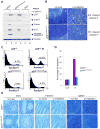
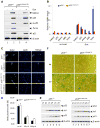
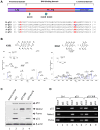
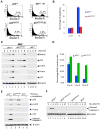
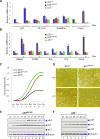
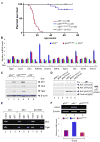

Comment in
-
Tumor suppression by p53: fall of the triumvirate?Cell. 2012 Jun 8;149(6):1183-5. doi: 10.1016/j.cell.2012.05.024. Cell. 2012. PMID: 22682240
References
-
- Bensaad K, Tsuruta A, Selak MA, Vidal MN, Nakano K, Bartrons R, Gottlieb E, Vousden KH. TIGAR, a p53-inducible regulator of glycolysis and apoptosis. Cell. 2006;126:107–120. - PubMed
-
- Brooks CL, Gu W. Ubiquitination, phosphorylation and acetylation: the molecular basis for p53 regulation. Curr Opin Cell Biol. 2003;15:164–171. - PubMed
Publication types
MeSH terms
Substances
Grants and funding
LinkOut - more resources
Full Text Sources
Other Literature Sources
Molecular Biology Databases
Research Materials
Miscellaneous

